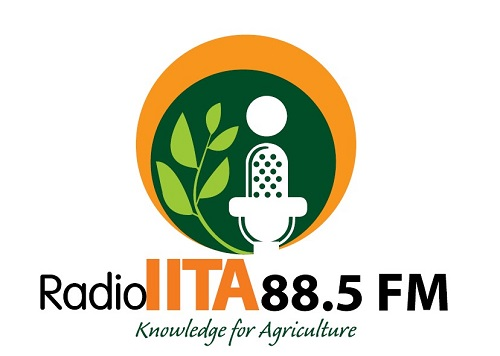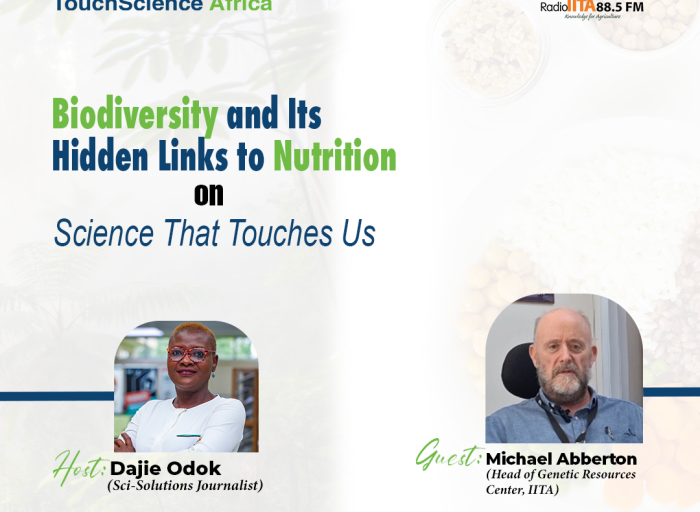Recently, RadioIITA, in partnership with the IITA Plantain/Banana Breeding Program, hosted a wide-ranging training session for local farmers to improve plantain and banana yields and promote sustainable agricultural methods. The training addressed several critical areas, including choosing high-quality planting materials, soil amendment, sucker management, mulching, staking, and other best practices to enhance the productivity of plantain farms.
During the outreach, Delphine Amah, Plantain/Banana Breeding Program Lead urged farmers to avoid using direct suckers from existing fields as these often harbor pests and diseases. Planting such suckers can lead to the spread of infestations and diseases to new fields, significantly reducing the overall productivity of the farm, she said.
Also using low-quality or infected planting materials can lead to poor germination and stunted plant growth, ultimately affecting yield. To achieve optimal growth and maximize harvests, farmers must prioritize using clean, certified planting materials sourced from reputable providers.
Another Scientist, Vish Banda, the Crop Variety Development Manager, informed the farmers that clean and disease-free planting materials could be obtained from reputable tissue culture laboratories and through plantain macro-propagation, also known as clonal seed production. These methods ensure the planting materials are free from diseases and pests, offering a higher guarantee of robust and healthy plant growth.
At the Demonstration site which focused extensively on effective sucker management, the plantain farmers were educated on the importance of controlling the number of suckers on a mat for optimal plant development and fruit quality.
Sucker management, according to Temitope Ademulegun, Plantain/Banana breeder is a crucial aspect of plantain cultivation. It refers to the systematic method of regulating the growth of suckers—the offshoots that develop from the base of the main plant. If left unmanaged, suckers can overcrowd the mat, leading to competition for nutrients and water, which ultimately results in poor fruit development.
Other experts from the Plantain/Banana Breeding Program, including plantain Pathologist Yao, spoke on the challenges farmers encounter in plantain/banana production and emphasized the need for farmers to maintain a balanced number of plants per mat. They advised that at any given time, a healthy mat should consist of the main plant, a maiden plant, and one or two young suckers at various stages of growth. This configuration allows for a steady production cycle, ensuring that while one plant is fruiting, others are at different stages of development, ready to take over after harvesting.
Proper sucker management is key to maximizing yield and ensuring the sustainability of plantain production and by following the recommended practice of having only a few suckers per mat, farmers can significantly enhance the quality and quantity of their produce.
The participants gained valuable insights into the latest developments in plantain breeding. They understood the benefits of using improved cultivars that are more resilient to pests, diseases, and varying climatic conditions.
In appreciation, the farmers pledged quick adherence to the practices taught, and remarkable improvements in the health of their plantain crops and the overall productivity of their farms are now expected.
See training video: https://www.youtube.com/watch?v=D8CHetthRA0
Contributed by Victoria Idowu



